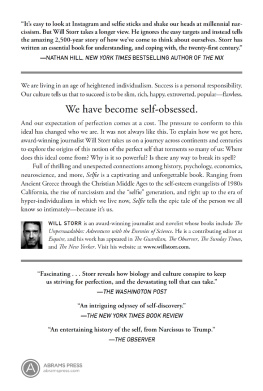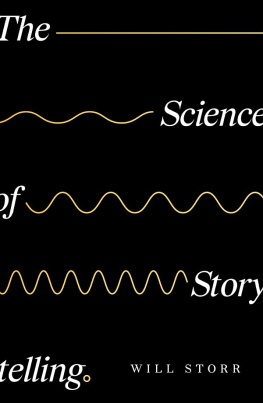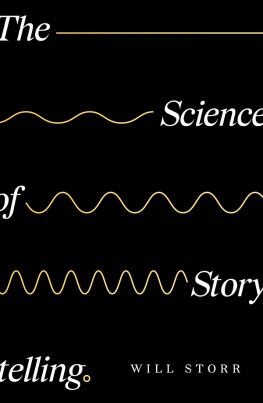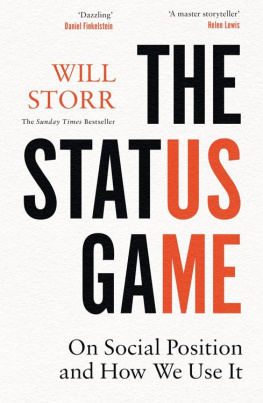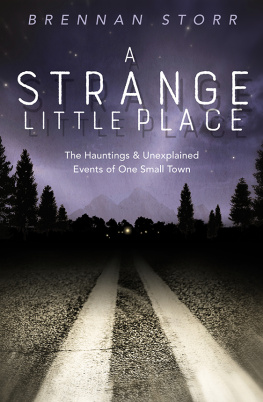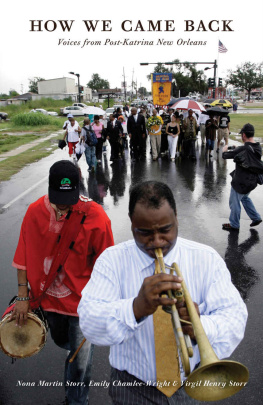Praise for Selfie
Despite its trendy title, Selfie is not a frivolous book about taking photographs of oneself and littering social media with them... Selfie is an ambitious survey of the influences that make us who we are. Storr ably synthesizes centuries of attitudes and beliefs about selfhood, primarily in western thought, from Aristotle, John Calvin, and Freud to Sartre, Ayn Rand, and Steve Jobs.
USA Today
Smartphones and social media are turning us into dreadful narcissists. Would anyone care to dispute this? Yes, actually. His name is Will Storr... The root problem, Selfie contends, isnt our devices or our social media sites. Its us. Or rather, its the civilization weve built, a culture that for many decades has encouraged ever greater degrees of self-regard.
The Daily Beast
Ambitious... Storr is an electrifying analyst of Internet culture.
Financial Times
A timely, inspiring book about self-obsession in modern life.
Harpers Bazaar
This entertaining investigation is essentially a social history of the self, from earliest times (when we worked to increase our status within the tribe) to our current vainglorious self (hungry for likes and approbation on social media).
Toronto Star
A free ranging account of the modern, ego-driven Western self... A corrective, and a much-needed one, to a moment fixated on its own particularity.
The New Republic
Takes on the ambitious subject of how people think of themselves... The latest from the adroit, widely respected Will Storr.
Booklist
Storr continually delivers rich insights... Captivating.
Kirkus Reviews
As entertaining as it is provocative and disquieting.
Mail on Sunday
Thoughtful and engaging... Storrs cultural history is fascinating.
Guardian
Selfie illuminates much of what feels peculiar about the world... Storr is irascibly good company, and he has something approaching genius for marshaling his material. Timely and welcome.
Sunday Times
This book is seriously eye-opening.
Emma Gannon, Ctrl Alt Delete podcast
Brilliant... There arent many authors who can range so confidently across disciplines and, if you go with the flow, youll encounter some fascinating nuggets along the way.
Evening Standard
A hellishly good book about the new hell: ourselves.
Daily Express
Storr is a magnificent reporter... Selfie is profound.
New Statesman
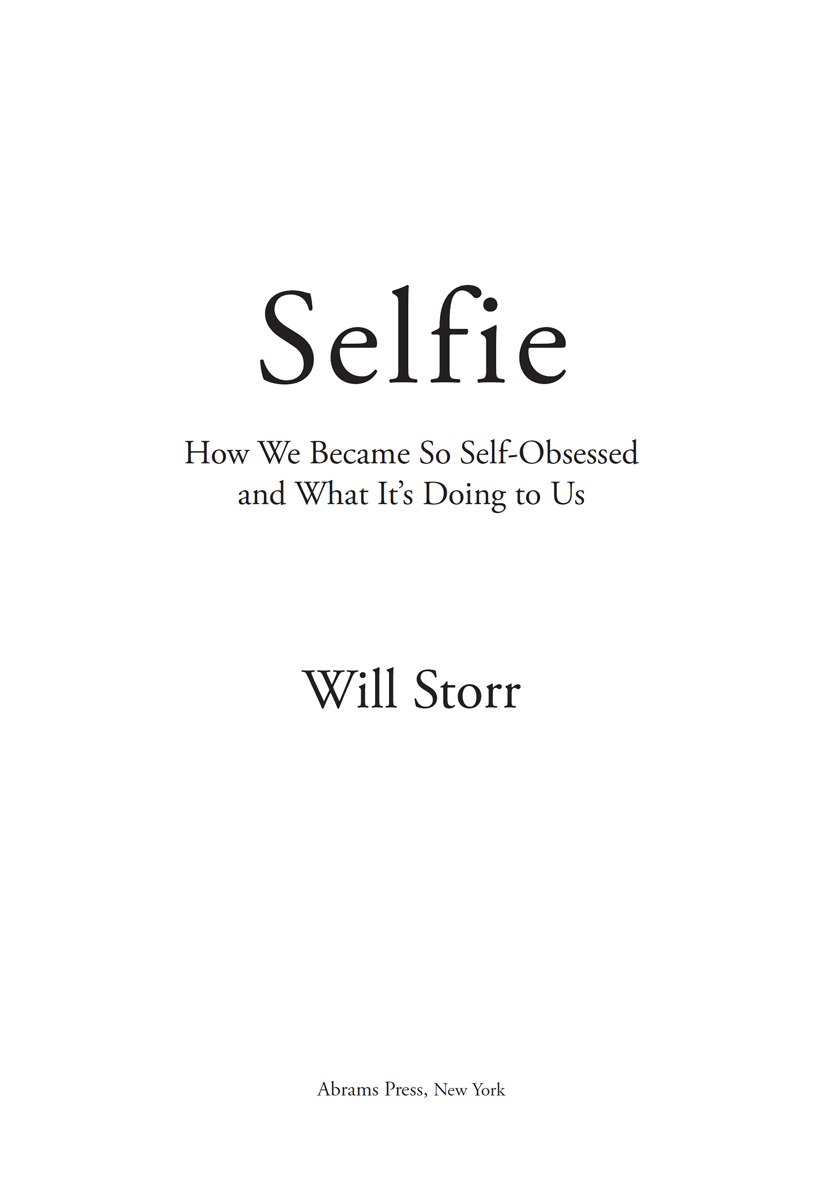
Copyright 2018 Will Storr
Published in 2019 by Abrams Press, an imprint of ABRAMS.
Previously published as a hardcover in 2018. All rights reserved.
No portion of this book may be reproduced, stored in a retrieval system, or transmitted in any form or by any means, mechanical, electronic, photocopying, recording, or otherwise, without written permission from the publisher.
Cataloging-in-Publication Data has been applied for and may be obtained from the Library of Congress.
ISBN: 978-1-4683-1695-7
eISBN: 978-1-4683-1590-5
Abrams books are available at special discounts when purchased in quantity for premiums and promotions as well as fundraising or educational use. Special editions can also be created to specification.
For details, contact specialsales@abramsbooks.com or the address below.
Abrams Press is a registered trademark of Harry N. Abrams, Inc.

ABRAMS The Art of Books
195 Broadway, New York, NY 10007
abramsbooks.com
Out culture tells us that to succeed is to be slim, rich, happy, extroverted, popularflawless.
We have become self-obsessed.
And our expectation of perfection comes at a cost. Millions are suffering under the torture of this impossible fantasy. The pressure to conform to this ideal has changed who we are.
It was not always like this. To explain how we got here, award-winning journalist Will Storr takes us on a journey across continents and centuries to explore the origins of this notion of the perfect self that torments so many of us: Where does this ideal come from? Why is it so powerful? Is there any way to break its spell?
Full of thrilling and unexpected connections among history, psychology, economics, neuroscience, and more, Selfie is an unforgettable book that makes sense of who we have become.
Ranging from Ancient Greece, through the Christian Middle Ages, to the self-esteem evangelists of 1980s California, the rise of narcissism and the selfie generation, and right up to the era of hyper-individualism in which we live now, Selfie tells the epic tale of the person we all know so intimatelybecause its us.
For Charles Whitman,
who was right.
Day or night, its always true,
The kingdom lives inside of you.
When you say these words, three times in a row:
Im lovable, Im lovable, Im lovable!
Your lovable self will magically grow.
Diane Loomans,
The Lovables in the Kingdom of Self-Esteem (1991)
I am done with the monster of we, the word of serfdom, of plunder, of misery, falsehood and shame.
And now I see the face of god, and I raise this god over the earth, this god whom men have sought since men came into being, this god who will grant them joy and peace and pride.
This god, this one word:
I.
Ayn Rand, Anthem (1931)
A significant part of this book concerns differences between groups of people. Sometimes generations are compared, at other times cultures. Its important to stress that these are always general tendencies that academics have detected across large numbers of people. In the real world, there is a huge variation amongst individuals, and no general observation about a specific group can ever be reduced to an observation about any particular person.
At first there was nothing. She was a person, tied to a bed, and that was all. No memories, no thoughts, only strange sounds: electronic beeps, a soft mechanical drone. And then, emerging from the haze, a voice: Can you tell me what this is?
Something was floating in front of her.
A pen? she said.
In gauzy glimpses of awareness shed recognize shapes in the room a bed, a chair but somehow she was unable to turn all the individual pieces into a whole, connected scene. Human forms would stand over her and tell her they knew her, but she had no idea who she was. She didnt know it was the second week of June 2007 or that she was forty-three years old or that she was Debbie Hampton from Greensboro, North Carolina. At some point, however, she did come to understand the fundamental facts of her predicament. She was alive. And she was furious about it.
had taken an overdose of over ninety pills, a combination of ten different prescription drugs, some of which shed stolen from a neighbours bedside cabinet. Ever since shed been the gangly girl that everyone at school called Monkey, Debbie had suffered from low self-esteem. Her childhood had not been easy. My parents got divorced when I was sixteen, she told me, and I vowed, then and there, that I would never do that to my children.
When she was twenty-one she married her childhood sweetheart and they quickly had children. She was determined to become the woman of his dreams. My husbands mom was the epitome of the perfect mother and wife. She stayed at home, raised the kids, was a wonderful cook, was crafty. She was what I wanted to be. But as hard as she tried, Debbie couldnt be that woman. The life of the housewife bored her. I wasnt a pleasant person to be around. I was angry. The marriage ended. And so there she was, the single mother she swore shed never be. She began dating, but it didnt go well. I literally saw my youngest son sit in the middle of the hall crying big tears because he wanted a real dad. As a child, Debbie had always tried to be the person her mother wanted her to be. As an adult, shed struggled to be the person she imagined her husband desired. All her life shed been chasing that dream of perfection and, all her life, her dream of perfection had dodged her grasp. What she felt like now was a failure. My thoughts were, Youre not a good enough mother, youll never be able to earn money, youre getting older, youll never get a man and please him.
Next page
